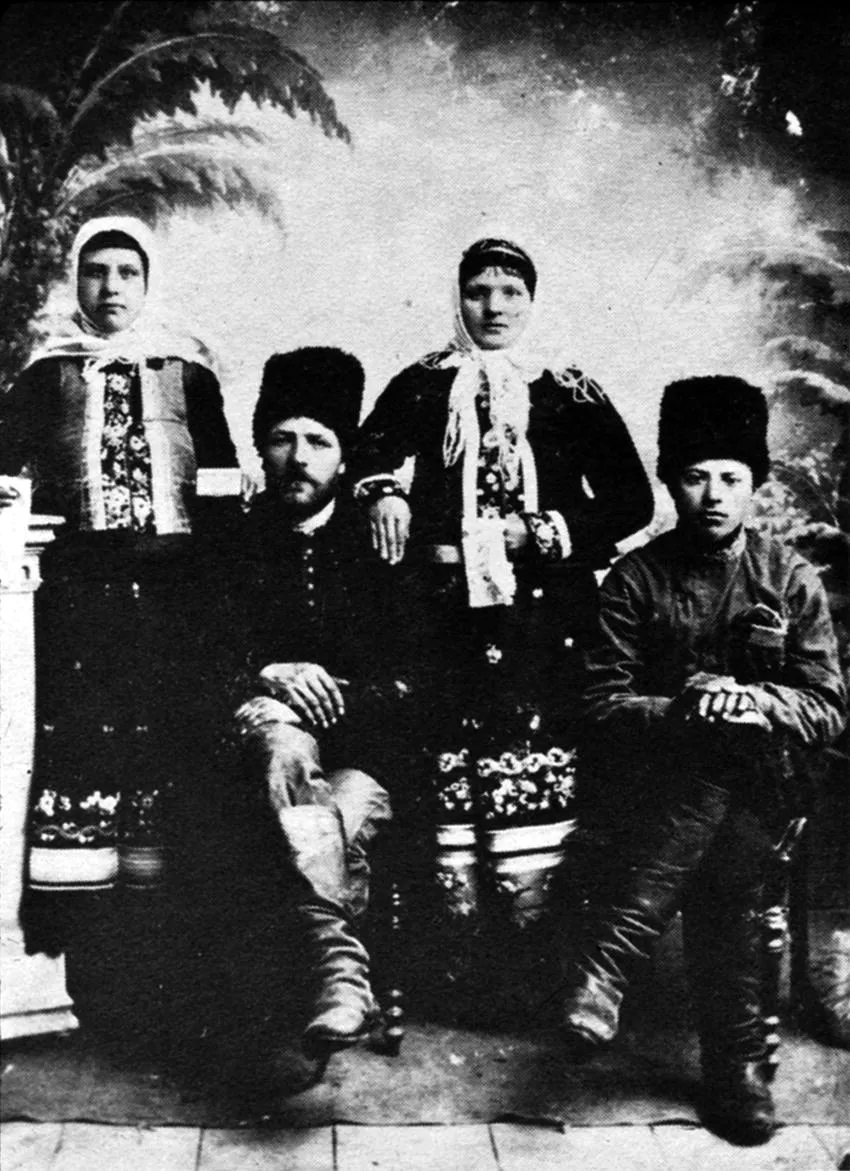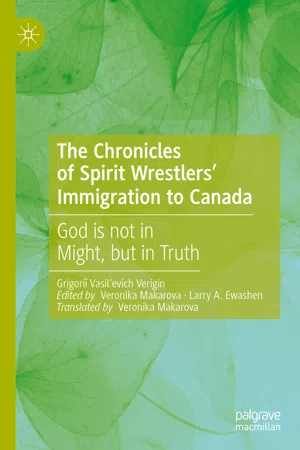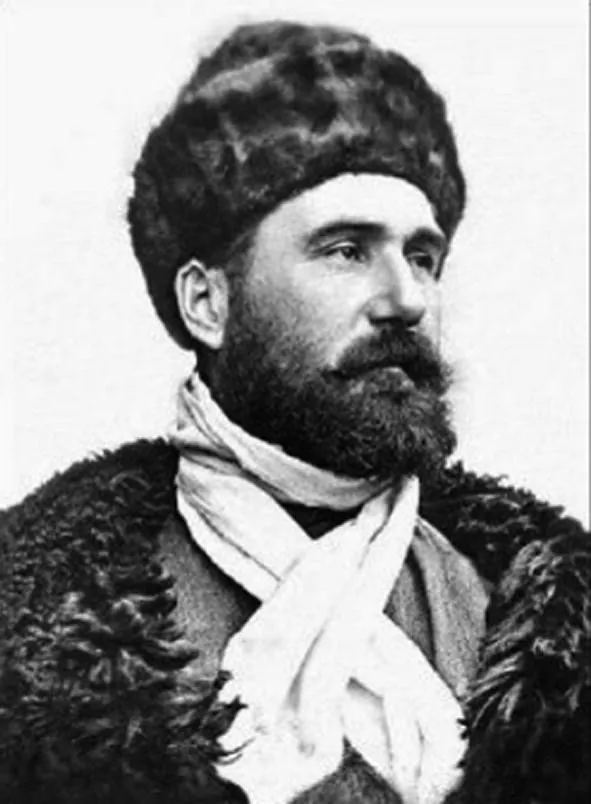

The Chronicles of Spirit Wrestlers' Immigration to Canada
God is not in Might, but in Truth
- English
- ePUB (mobile friendly)
- Available on iOS & Android
The Chronicles of Spirit Wrestlers' Immigration to Canada
God is not in Might, but in Truth
About This Book
This book describes the history in late 19 th -century Russia and immigration to Canadaof an ethnic and religious group known as Doukhobors, or Spirit Wrestlers. The book is a translation into English of the Russian original authored by Grigori? Verigin, published in 1935. The book's narrative starts with the consolidation of Doukhobor beliefs inspired by the most famous Doukhobor leader, Pëtr Verigin. It describes the arrival of Doukhobors in Canada, their agricultural and industrial accomplishments in Saskatchewan and British Columbia, and the clashes and misunderstandings between Doukhobors and the Canadian government. The narrative closes in 1924, with the scenes of Pëtr Verigin's death in a yet unresolved railway car bombing, and of his funeral. The author emphasizes the most crucial component of Doukhobor beliefs: their pacifism and unequivocal rejection of wars and military conflicts. The book highlights other aspects of Doukhobor beliefs as well, including global community, brotherhood and equality of all the people on earth, kind treatment of animals, vegetarianism, as well as abstinence from alcohol and tobacco. It also calls for social justice, tolerance, and diversity.
Frequently asked questions
Information
1. Resettlement from Taurida Guberniia to the Caucasus

2. Pëtr Vasil’evich Verigin

Table of contents
- Cover
- Front Matter
- 1. Resettlement from Taurida Guberniia to the Caucasus
- 2. Pëtr Vasil’evich Verigin
- 3. Life and Death of Luker’ia Vasil’evna Kalmykova
- 4. The Arrest of Pëtr Vasil’evich and His Exile from the Orphans’ Home
- 5. His Exile According to the Administrative Order to Arkhangel’sk Guberniia for Five Years
- 6. The Transfer of Pëtr Vasil’evich from Shenkursk to the Island of Kola. The Extension of His Exile for Five More Years. The Return to Shenkursk
- 7. What Happened to the Orphans’ Home. Division of the Doukhobors
- 8. My Trip to Shenkursk and My Communal Life There
- 9. Pëtr Vasil’evich’s Message to the Doukhobors Through Ivan Evseevich Konkin
- 10. The Relaying of the Message and Its Fulfilment by the Doukhobors. The Exile of Ivan Evseevich Konkin
- 11. The New Exile of Pëtr Vasil’evich to Obdorsk of the Tobol’sk Guberniia for Five Years. The Trip by Vasiliǐ Gavrilovich Vereshchagin and Brother Vasiliǐ Vasil’evich to Shenkursk to Visit Pëtr Vasil’evich and Their Receipt of a Message for the Doukhobors
- 12. Prisoner Transport of Pëtr Vasil’evich to Obdorsk, Tobol’sk Guberniia
- 13. Accomplishment of the Mission. Letter of Pëtr Vasil’evich to the Doukhobors. Doukhobors’ Refusal of Military Service. Imprisonment of Vasiliǐ Verigin and Vereshchagin
- 14. The Burning of Weapons in Three Guberniias and the Return of the Reserve Conscription Cards
- 15. The Burning of Weapons in the Akhalkalak Area and the Brutal Massacre by the Government
- 16. The Destruction of Livelihood and Possessions; Resettlement Among the Indigenous Peoples
- 17. My Arrest and Life in Prisons
- 18. Torments in the Ekaterinograd Disciplinary Battalion
- 19. Exile to Iakutsk Area. The Description of the Prisoner Transport to Nizhneudinsk
- 20. The Continuation of Prisoner Transport. The Last Words and Death of Vasiliǐ G. Vereshchagin
- 21. Life in Nel’kan
- 22. Life in Notor, Iakutsk and Other Areas
- 23. A Trip to Russia
- 24. A Trip Abroad
- 25. Arrival in England. Meeting the Chertkovs
- 26. A Request for Relocation. A Letter by Pëtr Vasil’evich to the Empress Aleksandra Fëdorovna Romanova
- 27. The Relocation
- 28. A Letter of Anastasiia Vasil’evna Verigina to Empress Aleksandra Fëdorovna Romanova
- 29. The March of Brothers and Sisters for God’s Cause
- 30. The Release of Pëtr Vasil’evich Verigin by the Russian Government and His Journey to Canada to the Doukhobors
- 31. Pëtr Vasil’evich Travels Around All the Villages. His Speeches and His Advice to the People
- 32. The Congress for the Discussion of the Land Issue. Acceptance of Land
- 33. Starting the Communal Household. The Life of Pëtr Vasil’evich in Otradnoe
- 34. Cancellation of Land Entries by the Government for Non-acceptance of Allegiance to the British King Edward
- 35. A Letter to the Government and the People of Canada Regarding Cancellation of Land Entries
- 36. A Move to British Columbia. An Explanation to the Government
- 37. Detailed Inquiry and Investigation by Royal Commissioner William Blakemore
- 38. The Explanatory Letters of Doukhobors to Blakemore
- 39. The Inquiry Report and the Recommendation of the Royal Commissioner William Blakemore
- 40. A Conversation Between Military Minister Bowser and the Doukhobors About Registries and Schools
- 41. The Resolution by Soldiers Who Returned from the War Reached at a Big Meeting in Nelson on February 13, 1919
- 42. Canada and Doukhobors
- 43. Death and Funeral of Pëtr the Lordly
- Back Matter